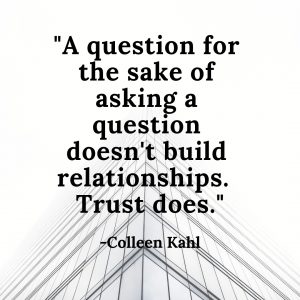
Oscar Isaac and Adam Driver at the “Star Wars: The Force Awakens” World Premiere at TCL Chinese Theatre on December 14, 2015 in Hollywood, California.
by Brian O’Neil
“Where are the Pacinos? Where are the Hoffmans and the DeNiros? What about the up and comers like the guys who made the edgy, grimy films of the 70s so great?” So went the lament during an era when filmgoers had experienced a shift to a newer, softer and younger “model” that had burgeoned during the 1980s.
And oh, had the teenagers piled in and piled on: Tom Cruise, Matt Dillon, Rob Lowe, Ralph Macchio and others had become known as the “the brat pack” and largely became the “newer” breed of film star. There are traditional actors in the mix, to be sure, but Hollywood holds onto “kids” whose training is either flat-out nil, or who learn their craft not on stage, but while the cameras are actually rolling.
The trend continued with an endless stream of children and adolescents: Leonardo DiCaprio, Andrew McCarthy, Meg Ryan, Natalie Portman, Scarlett Johansson, Tobey Maquire, Reese Witherspoon, Joseph Gordon-Levitt, Dakota Fanning, and Jennifer Lawrence, to give just a small sampling. “Kids” move along the Hollywood conveyor belt and then graduate to roles in feature films. Increasingly, this became the process of development for the new American movie star. And so, with some exceptions, most notably foreign actors from English speaking countries (e.g. England and Australia), it continues.
What happened? Certainly, there is no dearth of the swelling numbers of conservatory actors coming out of the increasingly popular and competitive degree drama programs in America. Yet many of this group seem to be moving into an ever-expanding television market while the more “established”, if less formal younger actors keep advancing to the more rarefied air of film stardom. By the 1990s a seismic shift in the way Hollywood recruited their young had taken hold and the culture of men and women had now given way to the boys and the girls.
Hollywood was aware that many, if not most actors in foreign countries where English was the mother tongue, were eager to come to work in the United States. Here the chances of having an international career were far greater than staying home in the United Kingdom or Australia were likely to provide. And most of these actors were willing to work for moderate wages, at least in the early stages of what would often turn out to be ever-expanding careers.
Still, we are told, repeatedly, that the “training” of the foreigners is key. Well, yes and no. Much of what is in writing in this regard doesn’t hold up under actual research. Over time a surprising number of British actors, often Academy Award/Emmy Award winners/nominees, happily reveal that they have “no training whatsoever.” Perception and presumption go a long way.
As we moved into the beginning of the second decade of the twenty-first century the quantity of scripted American television product was in a state of seemingly unlimited expansion, doubling and tripling the previous amount of content found on the air some years earlier. “On the air” itself took on a somewhat new meaning as broadcast television had made room for cable and both were now facing competition from the newer streaming services of Netflix, Hulu and Amazon. And so, the demand for new “series regulars” expanded along with the quantity of television itself. It is there that we really begin to observe the mass escalation of British, Australian, Scottish and Irish actors who are often cast over Americans. Many Americans are now wondering why there isn’t “enough of them” to fill the demand.
Much of being an employment candidate at high levels of the industry requires being at a considerable career level. Understandably, studio and network executives want/need to feel that whomever they pick has proven themselves. They’ve shown some consistency in quality of work and reputation.
What is unknown to most Americans is just how many of the British and Australians have remarkably impressive credits in their homeland prior to their engagements here in the USA. Many already appear as regulars on a series or two and have either won or been nominated for major acting awards including those given out by the British Academy of Film and Television Arts (BAFTA). Again, the internet radically abetted an easy way to “discover” and cherry-pick the cream of the crop from English speaking countries.
Searching for talent “over there” has become far more figurative than literal. Obviously, in times past, this method was a non-option. So to those who said “Why?” one response was: “There’s a lot of high-level casting to do and there are a lot of actors we can consider.” In other words, to those who ask “why” the simple answer seems to be: “Why not?” Hollywood is able to provide American audiences with new faces. However, they are new faces with experience. This helps to create a win-win situation for executives in Hollywood and for the foreign actors.
Dab smack in the middle of the first decade of the twenty-first century there emerged in the United States a classically-trained stage actor, a man- not a teenager – who began his training as a young adult. He was getting some early “buzz” for his extraordinary work in drama school. He comes up in discussion as “the young generation’s answer to the days and likes of Al Pacino.”
Oscar Isaac Hernandez, born in Guatemala, came with his parents to the United States as a five-month old infant. Starting in Baltimore, on to Louisiana and ultimately to Miami, where Isaac was raised and educated; Isaac auditioned and was accepted into The Juilliard School’s prestigious Drama Division. There, he performed a wide range of contemporary and classical works. This culminated in his final production in the title role of “Macbeth.”
More Shakespeare beckoned to Isaac, with him leading in the NY Shakespeare Festival’s production,“The Two Gentlemen of Verona.” There is nothing unusual about a new alum from an A-list conservatory being cast in a New York Shakespeare Festival production. However, landing a lead role so quickly – one week after graduation – is out of the ordinary. But, so was Isaac. He continued to do more classics at other A-list New York theaters. These included Manhattan Theatre Club, along with an appearance on Law & Order, along with one film.
Then something happened. Television pursued Isaac, and in a pretty big way. Not unusual for a high-profile New York actor appearing in lead roles. What was unusual was that Isaac declined. Politely, as is always his way, but nevertheless, he declined. It wasn’t that he had a different or specifically planned “other” strategy, nor was it ego. Instead, such is his talent that Isaac is able to accept what interests him. And decline what doesn’t.
And so, minus television he proceeded to build his career in the more old-fashioned New York style. He maintained his focus by going back and forth between film and theater. None of which is to say that had he opted for a television series his film career would have derailed.
In fact, after the Law & Order episode, Isaac would be absent from the small screen for many years until he was well-established in film and an HBO mini-series called “Show Me a Hero” would prove irresistible to him. For his performance in “Hero” he was honored with a Golden Globe Award. If audiences felt they needed a young Pacino, they had one. And then some.
One major difference between Isaac and Pacino is Pacino took on Shakespeare after he was a movie star. His early efforts with classical material were met with disastrous response. Pacino’s background apparently lacked the training that a classics-oriented conservatory would provide.
Many top degree programs have a one to two percent acceptance rate. They consist of auditions and call-backs with days of being put to the test by the faculty and administration for admission. Those who long for the days of the old New York theater training often forget that some of those schools of yore granted entree simply “by interview.”
And so we move to the second actor of this discussion: Adam Driver. We had a young man, a US Marine Corps veteran, beginning his formal training as an adult. Immediately upon graduation, he earned admission into the highest levels of New York theater. This includes performing lead roles in Broadway productions of such British playwrights as George Bernard Shaw and Terence Rattigan. Driver, like Isaac before him, quickly did his obligatory Law & Order. Then something happened that proved very different from Isaac’s experience. Television beckoned in the form of HBO’s Girls and Driver accepted. And whatever Girls was or wasn’t, this was no ordinary television show.
Many critics felt that Driver, from an acting standpoint at least, was the heft and substance of the show. As Girls was finishing its fourth season, the future of Driver’s character seemed uncertain. Not coincidentally, the demand for Driver’s services in the world of feature film was burgeoning. At this point, many felt the show was losing its edge. Clearly, Girls wanted Driver to stay.
But here’s the thing. Girls was a twenty-eight minute show, running only ten episodes most seasons. The amount of content along with the schedule made it easier for Driver to accept other projects. So both Driver and Isaac had the good fortune of having flexible schedules to pursue what they chose.
What, then, is the upshot here? Contrary to the media, there are actors who are classically trained at top American drama schools. They have started their careers as adults, not as children or teenagers. As mentioned earlier, there is no dearth of such actors. However, seeing a new breed of an older world model of actor thriving in film once again is a joy. And in the “unconventional” leading man movie star category as well. Yet, call Oscar Isaac a “movie star” and he won’t like it. Call Adam Driver a “leading man” and he says, “I’m like a sight gag.” Unconventional indeed.
I am very fortunate that my work allows me to see and mentor actors of great substance. I will continue to tell stories of their professional journey in upcoming “chapters” of this series. Stay tuned.
Brian O’Neil is the best-selling author of Acting As a Business: Strategies for Success: Fifth Edition. He teaches at many of the country’s top drama programs including The Juilliard School and New York University. He coaches privately as well. For more information, please visit http://www.actingasabusiness.com.







